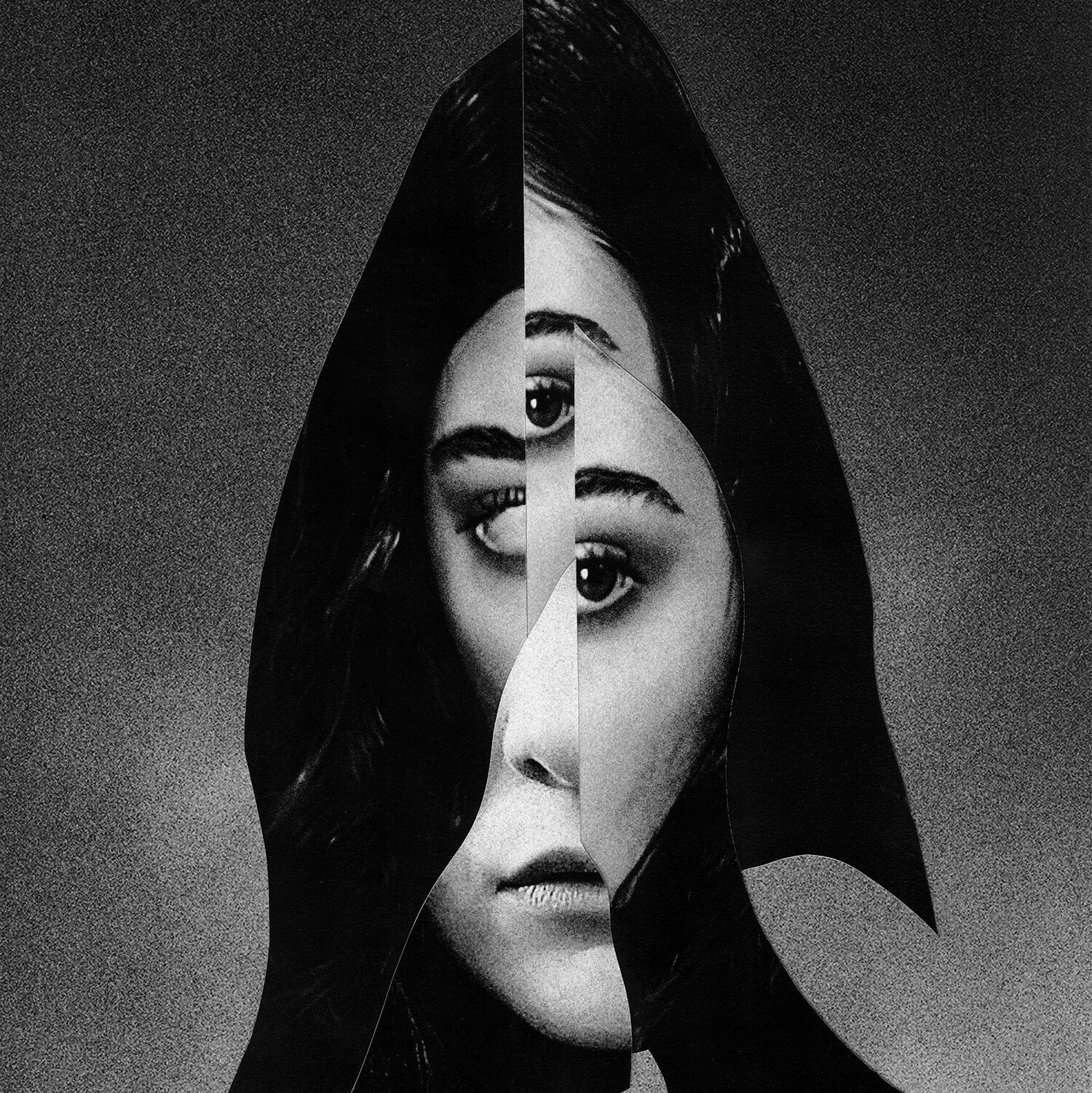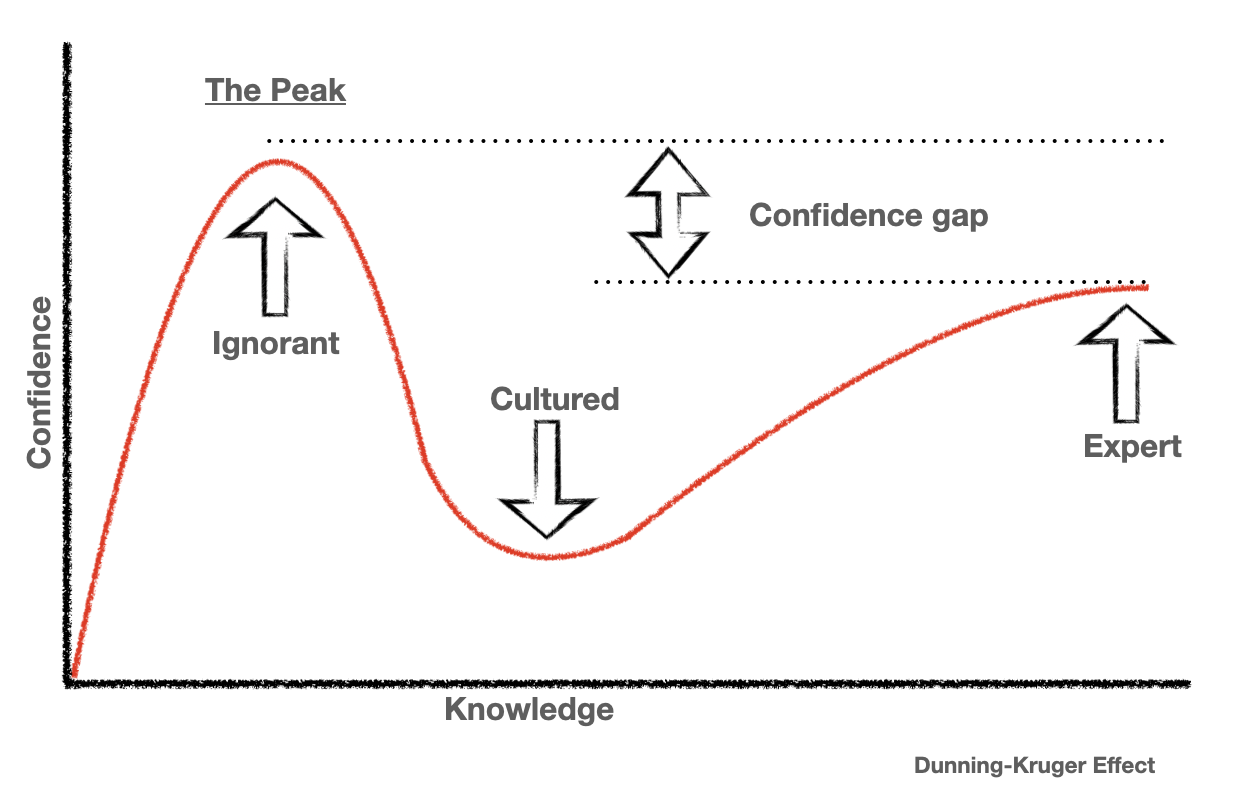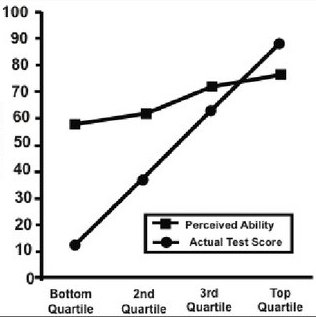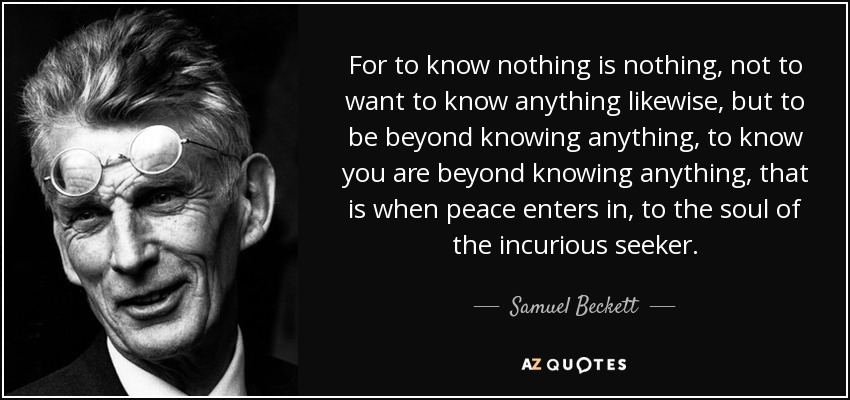The Dunning Kruger Curve: Overestimating Your Abilities

“Ignorance more frequently begets confidence than does knowledge.” - Charles Darwin 05.05.24
What is the Dunning-Kruger effect?
The Dunning Kruger effect is a cognitive bias in which one overestimates their capabilities in being able to do something. In short, if you have less knowledge on a topic, you are more inclined to believe that you know more. The opposite effect for competent persons has also been studied: the tendency to underestimate their skills. The concept is based off a paper published in 1999 by two Cornell University psychologists David Dunning and Justin Kruger. The pair performed a series of tests on 65 individuals and found that those who performed in the bottom quartile rated their skills far above average. A classic example would be a new driver thinking they have a good handle on driving, which leads them to taking risks on the road that a more experience driver would not.A Link to the original PDF of the study can be found here.
What is Cognitive-Bias?
Cognitive Bias is defined as a systematic error in thinking. It’s when we formulate opinions about something or someone based off our own experiences and perception. We don’t think objectively and form them based on all the information available. It might be easier to give some examples:- Believing someone is not capable of doing something based on their gender
- Assuming everyone shares your opinions or beliefs
- Learning a little about a topic, and then thinking you know everything about it
- Trusting someone more if they’re an authoritative figure than if they are not
- Not being able to revise your beliefs when supplied with new evidence
- Only paying attention to news stories that confirm your opinions
In the case of the Dunning Kruger effect the systematic error concerns their tendency to greatly overestimate their competence, i.e. to see themselves as more skilled than they are.
 When I got into recording I had no idea about anything. I wrote and recorded my first song and thought okay I have a
pretty good understanding of how to record now. My confidence level was high. Only after purchasing a few books and
courses that I realized my first song was merely the tip of the iceburg. In fact, there was an endless amount of knowledge
I hadn’t even touched on yet and in reality I actually knew basically nothing. The chart above pretty much spells all of this out.
When I got into recording I had no idea about anything. I wrote and recorded my first song and thought okay I have a
pretty good understanding of how to record now. My confidence level was high. Only after purchasing a few books and
courses that I realized my first song was merely the tip of the iceburg. In fact, there was an endless amount of knowledge
I hadn’t even touched on yet and in reality I actually knew basically nothing. The chart above pretty much spells all of this out. Overconfidence Is A B*tch
So here's the thing, we want to be somewhat ignorant and overconfident in the beginning because this is what actually drives us to go after something new. If you feel like "there's no way I can do that", you might never give it the chance. The overcompensation for your own ability is what allows you to dream big and swing for the fences. So it's a fine line we're walking. You need to be somewhat ignorant to take the chance and try, but you can't be too ignorant that you come off an *sshole. I think we all can agree that nobody likes a know-it-all.
A Little Knowledge Can Be Dangerous
It has been said that a little knowledge can be dangerous. It's important to stay conscientious of what you know and where you lie. The difference is a competent, self-aware person can realize that their knowledge of a topic is no longer sufficient in a conversation. They will quietly bow out of it. Opposed to the incompetent person who will just continue on sharing ideas and thoughts of which they have no idea are actually true or factually based.Don't Be Afraid To Ask Questions
It's perfectly fine to not know everything. It's impossible anyways. Albert Einstein once said "The more I learn, the more I realize how much I don't know". Or maybe he didn't say that. I actually don't know. Isn't that the Dunning Kruger effect? Is this a learning moment? See what do we actually know? Well unless it's published and well documented and then you remember it, then whatever that thing is you know. Bottom line is it's all about asking the right questions. And that it's always better to ask questions.
We Know Nothing
At the end of the day as much as we think we know, we still know nothing. Socrates said it first "All I know is that I know nothing". It's recognizing our limitations and being able to learn and grow from them. Think constant evolution towards an infinite peak of knowledge. We will always be learning and expanding our minds but never will we be able to know it all. It's inherent in our nature as humans to try and organize and understand information as it comes in. In the digital age we are now having to process exponentially more information all at once. It's to no surprise that the line might be missed at times. Stay humbled, stay self-aware, and stay confident. Remember to always seek more information from multiple sources. Be open to feedback even if it takes a shot at your ego. Employ a growth-mindset and keep keeping on. And most importantly, don't fall victim to the Dunning Kruger Effect.True Knowledge From Knowing Nothing
This whole article came about through a conversation I had with a friend recently. He has a similar entrepreneurial spirit, so we every so often check in with one another. He was asking me how the whole coding thing was going (this whole website is a byproduct of me wanting to learn how to code), and I told him the peaks and valleys we're pretty extreme, that I was a bit confused as to where I was with my knowledge base. I was feeling good about everything, until I encountered my first test for an internship. I had thought my handle on what I had been studying was firm. I went into that test with all the confidence in the world. Well...I got smoked. Coming out of the test
was like leaving orbit and falling back into the earth's atmosphere at 24,000 mph. He started to tell me about the Dunning Kruger Curve and
how there was a correlation between our confidence and knowledge. It totally made sense, of course you are going to be more confident with
less knowledge on the subject. The further into my studies I got the more I realized it's an infinite stream. I learned HTML, CSS, and
Javascript...and then Python, Flask, and WSGI...then Linux and learning how to build a website...to now databases and storing information...you
get the point. The more you know the more you realize how much you actually don't know because now you have a better understanding of what's out there.
So don't feel discouraged, it's all just a part of the learning process. And if we can be aware of all of this, we will always have the upper hand.
Coming out of the test
was like leaving orbit and falling back into the earth's atmosphere at 24,000 mph. He started to tell me about the Dunning Kruger Curve and
how there was a correlation between our confidence and knowledge. It totally made sense, of course you are going to be more confident with
less knowledge on the subject. The further into my studies I got the more I realized it's an infinite stream. I learned HTML, CSS, and
Javascript...and then Python, Flask, and WSGI...then Linux and learning how to build a website...to now databases and storing information...you
get the point. The more you know the more you realize how much you actually don't know because now you have a better understanding of what's out there.
So don't feel discouraged, it's all just a part of the learning process. And if we can be aware of all of this, we will always have the upper hand.